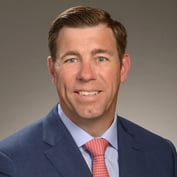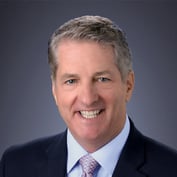In their book “Big Picture Economics,” Joel Naroff and Ron Scherer tell the story of Greg Parker, who, after graduating from college, took the convenience store his father built and parlayed it into the Parker Companies, which now owns a chain of 30 convenience stores, a 24-hour gourmet market, two laundromats and a real estate development business. To share business ideas—and get new ones—Parker “organizes a meeting with other CEOs from a wide variety of industries to discuss the economy and figure out ways to become more competitive.”
Two years ago, a speaker at one of those meetings got him thinking about the opportunities in the next business downturn—which he felt had already started—and how to take advantage of them. He took out a $10 million loan at a 3% fixed rate and started to expand the business. “My position is if you look from an economic standpoint, huge wealth was accrued at the end of the last Depression,” he told the authors. “And I am of the belief that huge wealth is going to be made in these [coming] times of hardship, and I think people who are well-positioned, that are smart and understand risk and are collateralized, have a huge opportunity.”
Lately, it’s become popular to suggest that financial advisors need to be “economists,” at least part of the time. From what I’ve read, this advice is primarily focused on advisors using forecasts based on economic indicators to better position client portfolios to weather—and profit from—what lies ahead. While this clear break from traditional long-term “buy and hold” asset allocation is understandably controversial, it seems to me far less problematic to suggest that independent advisors need be economists for a different reason: to manage their own firms more successfully. As I’ve written before, with the post-mortgage meltdown bull market now entering its seventh year—and up some 200% since its low of March 3, 2009—it’s probably past time for owner-advisors to start taking steps to position their businesses for the inevitable financial downturn. “Big Picture Economics” offers a novel approach to using economics to do just that.
Naroff, recipient of the National Association of Business Economists Outlook Award and Bloomberg News’ top economic forecaster in 2006, and Scherer, a veteran reporter for the Christian Science Monitor, used Parker and others to illustrate their contention that successful owners of businesses of any size (as well as elected officials, bureaucrats, bankers, educators and just about everyone else) need to be “economists.” But not just any kind of economists: We all need to use what the authors call “economics of context.” They contend that successful economic forecasting depends on understanding the context of the current situation.
“When it comes to using economics to help make decisions, what matters most is context,” they wrote. “Economics is all about taking human reactions and creating a way to understand how those decisions are made. Those reactions will differ under a variety of economic circumstances. Thus, you need to know where you have been and where you are so you make a correct decision about how you can go forward.”
For those who need it, “Big Picture Economics” goes into considerable detail about really big-picture stuff, such as how our current economy was created and how the federal government and Federal Reserve policies (taxes, borrowing and interest rates) work—or often don’t work—as expected. These chapters provide some macro context for economic events, yet the takeaway seems to be that the outcomes of actions at this level are really dependent upon the context of other, less recognized factors such as how people react.








 March 02, 2015 at 07:00 PM
March 02, 2015 at 07:00 PM










